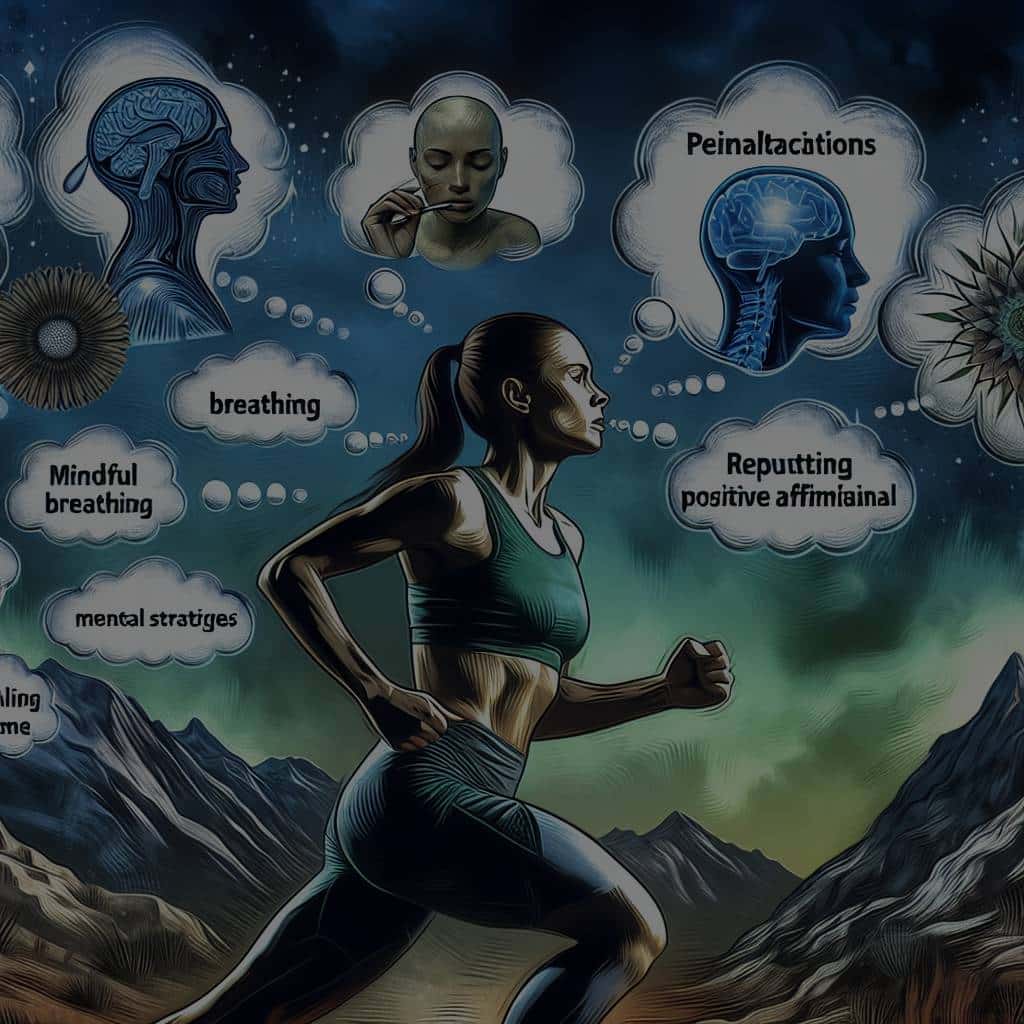Unquestionably, excelling in sports, especially in ultra-endurance events such as ultra-marathons or Ironman triathlons, requires not only exceptional physical fitness but also a high degree of mental toughness. Mental fatigue can prove to be a formidable adversary for runners who are pushing their bodies beyond regular endurance levels. However, understanding the psychological aspects related to sports can help athletes build resilience, enhance performance, and possibly win the race against mental fatigue. This article will explore various mental strategies that can help ultra-endurance athletes overcome mental fatigue and improve their performance.
Embracing the Psychology of Endurance Sports
Before we delve into the specific mental strategies, it is crucial to understand the psychological aspects of endurance sports. Endurance sports are as much a mental challenge as they are a physical test. The way an athlete approaches a race, their mindset during the race, and how they cope with challenges along the way can significantly affect their performance.
Lire également : How Do Paratriathletes Train for the Three Disciplines Simultaneously?
Endurance sports require a high level of mental toughness due to the prolonged stress on both the mind and body. The ability to maintain focus, determination, and motivation over long periods is a core requirement for success in these events. Conversely, mental fatigue, characterized by decreased concentration and reduced willingness to put forth effort, can negatively impact performance.
Understanding this link between psychology and sporting performance is the first step to developing effective mental strategies for combating fatigue and improving endurance.
A découvrir également : What Are the Most Effective Hip Mobility Exercises for Sprint Cyclists?
Building Mental Toughness
Building mental toughness is an essential strategy for ultra-endurance athletes. Mental toughness involves resilience, the ability to bounce back from setbacks, maintain focus and motivation, and manage stress effectively. Athletes can develop mental toughness through various techniques, including visualization, positive self-talk, and goal setting.
Visualization involves picturing yourself successfully completing the race, thereby creating a positive mental image that can boost confidence and motivation. Positive self-talk, on the other hand, involves replacing negative thoughts with positive affirmations. Lastly, goal setting provides a clear focus and a powerful motivation source, especially during challenging phases of the race.
Mental Endurance through Mindfulness Training
Another effective strategy for improving mental endurance is mindfulness training. Mindfulness involves being fully present and engaged in the current moment, acknowledging but not judging feelings and thoughts. Mindfulness training helps athletes stay focused on the task at hand rather than becoming overwhelmed by the enormity of the race or the discomfort they may be experiencing.
Mindfulness can also help athletes recognize when they are starting to experience mental fatigue. By being mindful, athletes can identify the early signs of mental fatigue, such as increased distractibility or decreased motivation, and take steps to address it before it significantly affects their performance.
Utilizing Sports Psychology for Enhanced Motivation
Motivation is a critical component of endurance sports. It drives athletes to train consistently, push through discomfort during the race, and strive to achieve their goals. Utilizing sports psychology can aid in enhancing this motivation.
One method is to use extrinsic motivation, which involves setting tangible goals such as achieving a personal best time or qualifying for a particular event. On the other hand, intrinsic motivation involves the enjoyment and satisfaction derived from participating in the sport itself. Both types of motivation can be powerful drivers, and using a combination of intrinsic and extrinsic motivation can help athletes maintain a high level of motivation throughout the duration of an ultra-endurance event.
Maintaining Physical Health to Support Mental Performance
While our focus is on mental strategies, we cannot ignore the critical role of physical health in supporting mental performance. Adequate nutrition, proper hydration, enough rest and sleep, and appropriate recovery strategies are all crucial in preventing both mental and physical fatigue.
Fatigue, whether physical or mental, can negatively impact an athlete’s performance. Therefore, maintaining good physical health is just as important as employing mental strategies. After all, the mind and the body are interconnected, and a healthy body can indeed support a healthy mind.
In summary, overcoming mental fatigue and enhancing performance in ultra-endurance sports requires a multifaceted approach. By embracing the psychology of endurance sports, building mental toughness, employing mindfulness techniques, harnessing the power of motivation, and maintaining good physical health, athletes can effectively handle the significant mental challenges posed by ultra-endurance events.
Harnessing the Power of Meditation in Ultra-Endurance Sports
In the realm of ultra-endurance sports, meditation can be a powerful tool for enhancing mental toughness. Whether it’s trail running, ultra-marathons, or other long-distance events, athletes often encounter mental fatigue that can hinder their performance. Meditation, specifically mindfulness-based stress reduction (MBSR), can help athletes manage this fatigue and improve their mental health.
Meditation helps athletes cultivate a present-focused mindset, which is critical for mental toughness. Through meditation, athletes can learn to stay in the moment, focusing on their current stride rather than worrying about the miles ahead. Regular practice of meditation can lead to increased calmness, improved focus, and a greater ability to handle stress, all beneficial traits for ultra-endurance athletes.
Moreover, meditation can also decrease anxiety and improve mood, positively impacting the mental health of athletes. A more relaxed, less anxious athlete is more likely to maintain focus, demonstrate resilience, and perform better in their sport. Hence, incorporating regular meditation sessions into their training regimen can be a game-changer for these athletes.
In-Event Mental Strategies for Ultra-Endurance Athletes
Just as important as pre-race mental strategies are the mental tactics used during the event itself. One such strategy is chunking, where athletes break up the race into smaller, more manageable segments. Instead of focusing on the daunting overall distance, athletes can concentrate on reaching the next aid station or completing the next mile. This tactic can make the event seem less overwhelming, reducing mental fatigue and enhancing athletic performance.
Another in-event strategy is cognitive reappraisal. This involves changing how one perceives a potentially negative situation. For instance, instead of viewing a steep uphill climb as a challenge, athletes might see it as an opportunity to stretch their muscles or increase their lead. By altering their perspective, athletes can maintain a positive attitude, boosting their endurance performance.
Lastly, athletes can use embodiment techniques during the event. These involve focusing on the physical sensations of running, such as the rhythm of their footfalls or their breathing pattern. This can help keep their mind occupied and reduce the risk of mental fatigue.
Conclusion
Achieving mental toughness in ultra-endurance sports is no easy feat. It involves a combination of many factors: embracing the psychology of endurance sports, developing mental toughness through goal setting and positive self-talk, enhancing mental endurance through mindfulness training, utilizing sports psychology for motivation, maintaining physical health, harnessing the power of meditation, and employing effective in-event mental strategies.
Moreover, just as each ultra-endurance event is unique, so too is each athlete. What works for one individual may not work for another. It’s crucial for athletes to experiment with different techniques, discover what works best for them, and incorporate these practices into their training regimen.
Endurance sports pose a significant challenge, but the mental fatigue associated can be managed and overcome. As we’ve seen, psychology plays a pivotal role in athletic performance. By integrating these mental strategies into their routine, ultra-endurance athletes can harness their mental power, boost their performance, and conquer the physical and mental challenges that come their way.
After all, as the old saying goes, "It’s not the mountain we conquer, but ourselves."











